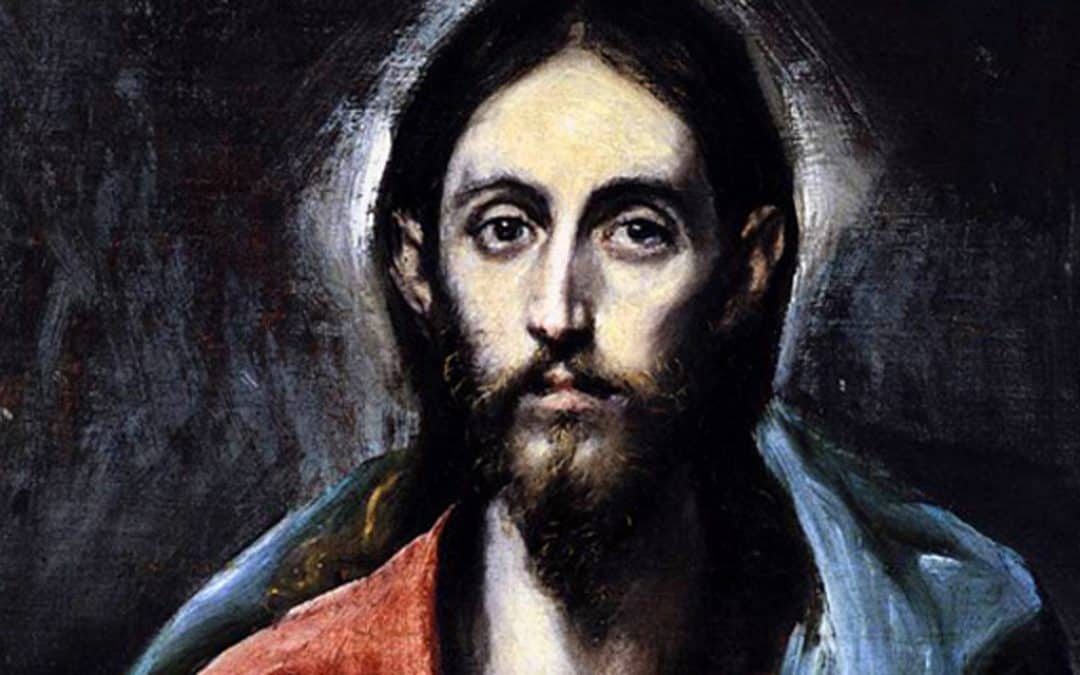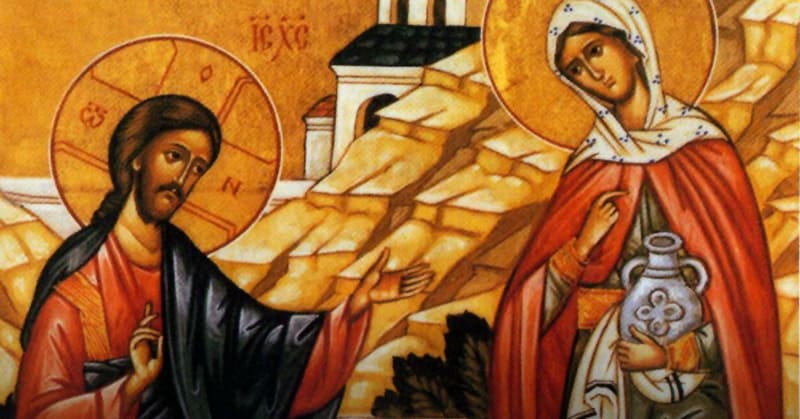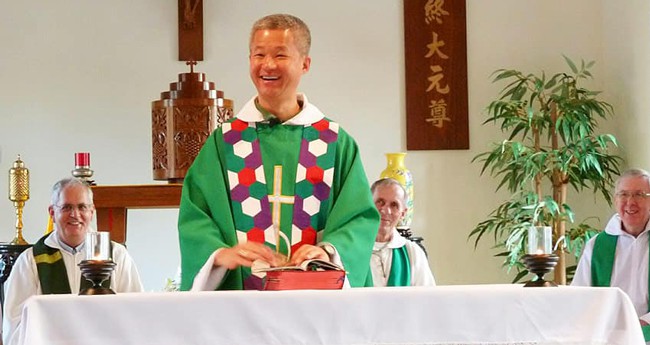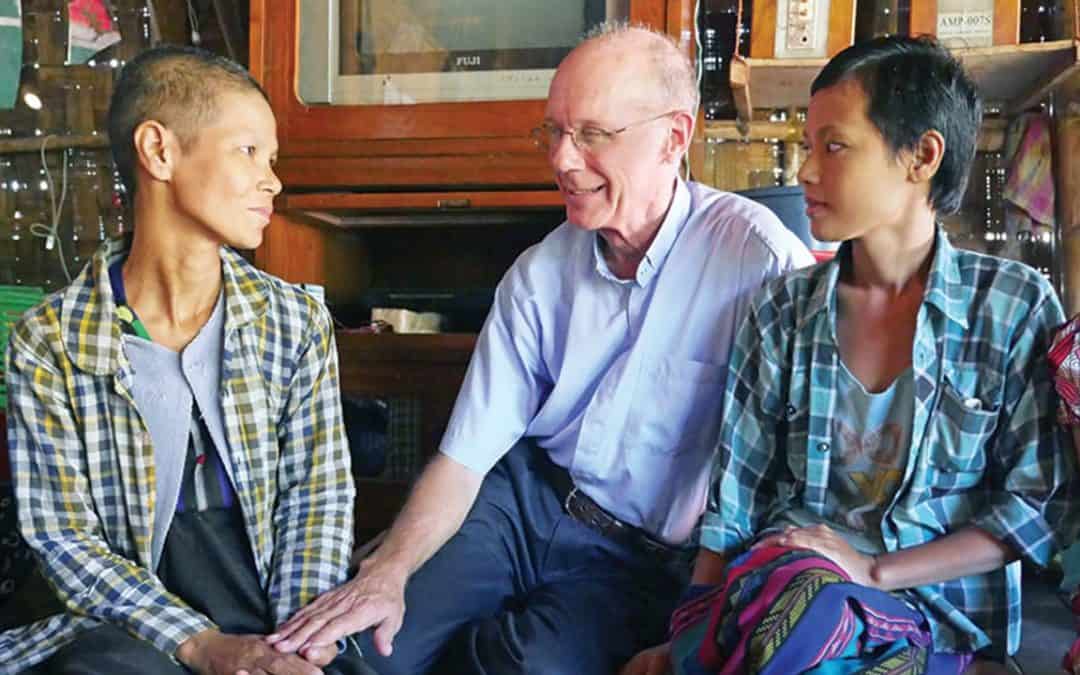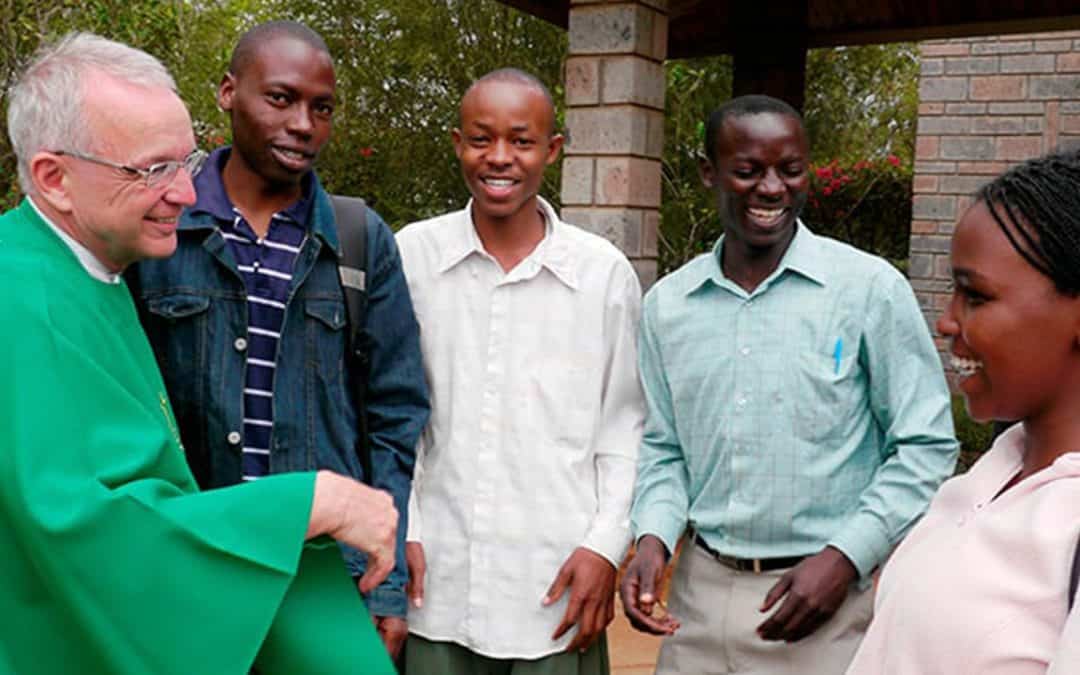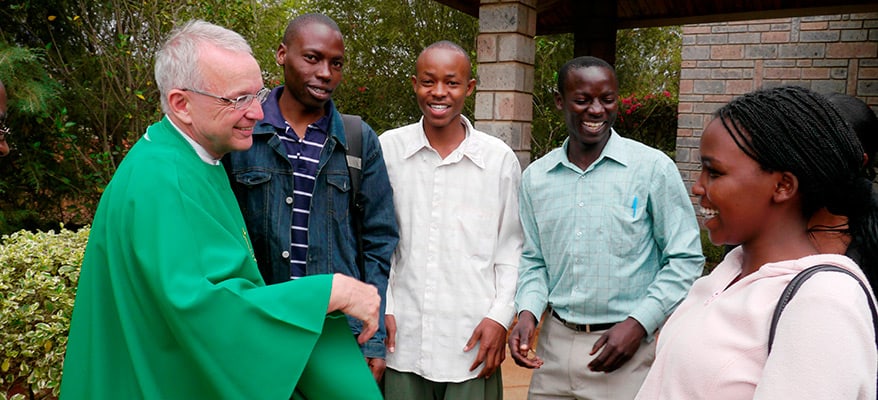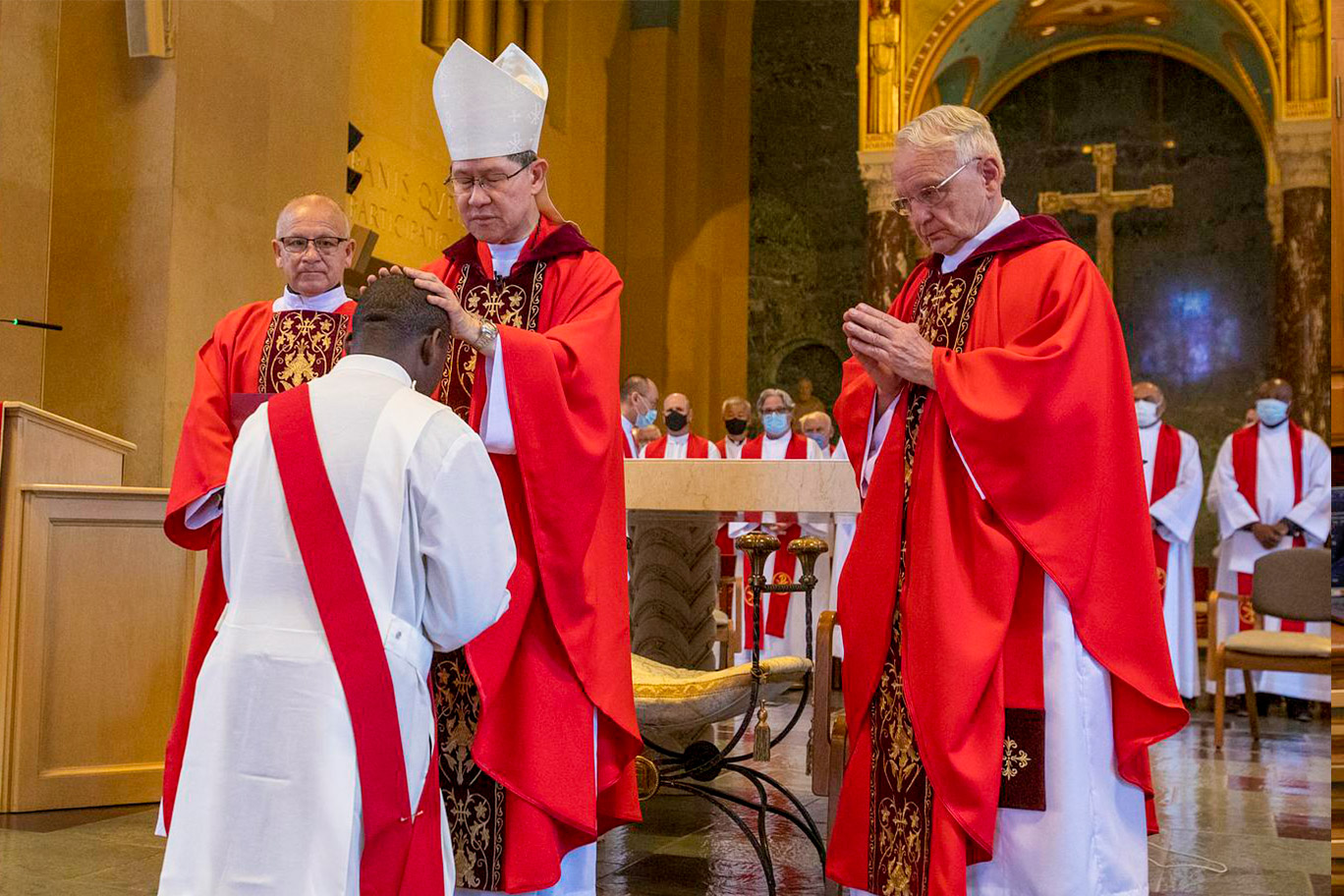
Easter Encounters, Journey of Faith
Allow me to tell you about a unique celebration of Easter from the Philippines, where I happily served as a missionary for over five decades. Filipinos celebrate a ritual, known locally as the “meeting” (encuentro); it dramatizes the encounter of the risen Lord and his mother Mary on Easter morning.
Popular Pageantry. Here is how this country-wide popular ritual unfolds. In the early morning darkness, two processions proceed through the town streets. An all-male group follows the statue of the risen Christ; the women follow the sorrowful mother (mater dolorosa). The sober, sad mood of Good Friday dominates the two processions. Both groups, praying and singing, emerge into the town square where additional crowds are waiting. They approach the arch of “meeting.” The first light of dawn is breaking.
A white-clad angel is lowered ever so carefully from the arch. She intones the Regina Caeli Laetare, Alleluia (Queen of Heaven Rejoice, Alleluia). As the angel choirs break into their Easter chants, the lead angel removes the black veil and reveals Mary’s joyous face. Mary meets her risen Son—to the wild, yet prayerful, enthusiasm of the expectant crowd. Then the Eucharist is celebrated; the faithful hear the Gospel proclamation to become, like the first disciples, witnesses of the risen Lord.
Easter Experience. The foregoing description of the Easter pageantry in the Philippines is, in fact, eminently faithful to the Gospel narratives; it follows a common five-point pattern that describes the “experience” of meeting the risen Lord.
(1) There is a mood of sadness, fear, and despondency. For example, Mary Magdalene weeping; the Emmaus disciples are returning home disappointed.
(2) The initiative for the encounter comes from Jesus; he comes to Mary, but she thinks he is only the gardener; Jesus “the stranger” walks with the Emmaus disciples.
(3) There is a greeting of peace and reconciliation. Jesus says to his disciples: “Peace be with you.” He personally calls Mary Magdalene by her name.
(4) The high point comes in the moment of recognition. The Emmaus disciples recognize Christ in the breaking of the bread; Mary addresses Jesus as “Rabbuni” (Teacher); John exclaims to Peter: “It is the Lord.”
(5) A mission command from Jesus follows: “Go out to the whole world; proclaim the Good News to all creation.” “Go, make disciples of all nations.”
Our Experience. This five-point biblical pattern, found in the Filipino celebration, is a paradigm of our own Christian experience. We often walk in darkness, failing to recognize Christ’s presence among us; he calls us by name to acknowledge his living presence; we need Word and Sacrament (the Eucharist) to heal our blindness; when we recognize that he is risen and alive, we are impelled into mission to announce the Good News to all.
Easter Greeting. Indeed, Easter is all about meeting the crucified-risen Lord and keeping his personal presence alive in our lives. May you continue to have a deep “encounter” with the risen Lord!
James H. Kroeger, M.M.
Easter Sunday
My tears of sadness and broken heart
echo throughout the ages from Jerusalem
to my sorrowful home where the absence
of loved ones and departed friends
overshadows any hope of joy returning.
As the first rays of the new day break
through the darkness of endless night
an Angel in dazzling white asks:
“Why seek the living among the dead?”
Mary Magdalene’s mournful plea
resounds and echoes in my empty heart:
“Have you taken the body of my Lord?”
and then, against all hope or reason,
I hear a stranger call my name
pronouncing it full of love as no one else.
“My Lord! My Savior! My God!”
I would cling to you forever if I could.
But you, O Risen Jesus, have a mission
for me, your most humble and unworthy
disciple and servant: “go to my brothers
and sisters and share the Good News.”
Make me then your witness Lord,
to the ends of the earth no less than
to my family and friends.
Let my life be my proclamation:
“Jesus is risen! Jesus is with us!”
come, let us encounter him in our service
to others and in the Breaking of Bread.”
Alleluia! Amen!
Prayer by Father Joe Veneroso, M
Photo: Maryknoll Sisters at Selma, March 7, 1965. (Photo courtesy of Maryknoll Mission Archives)
